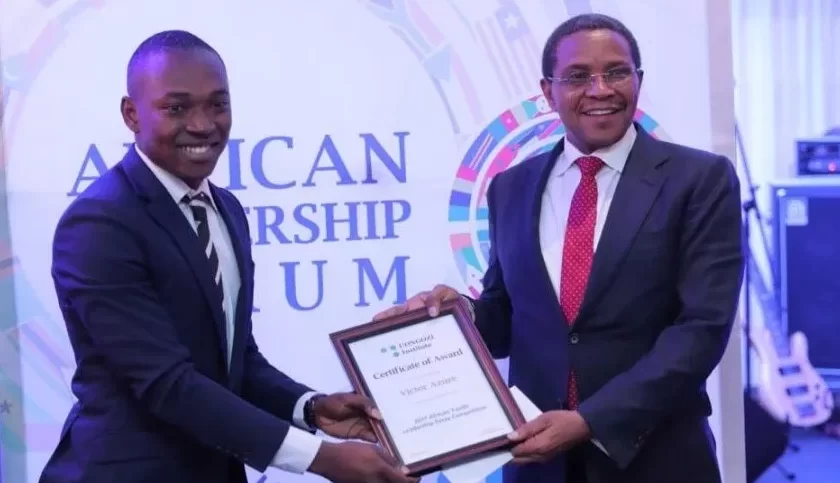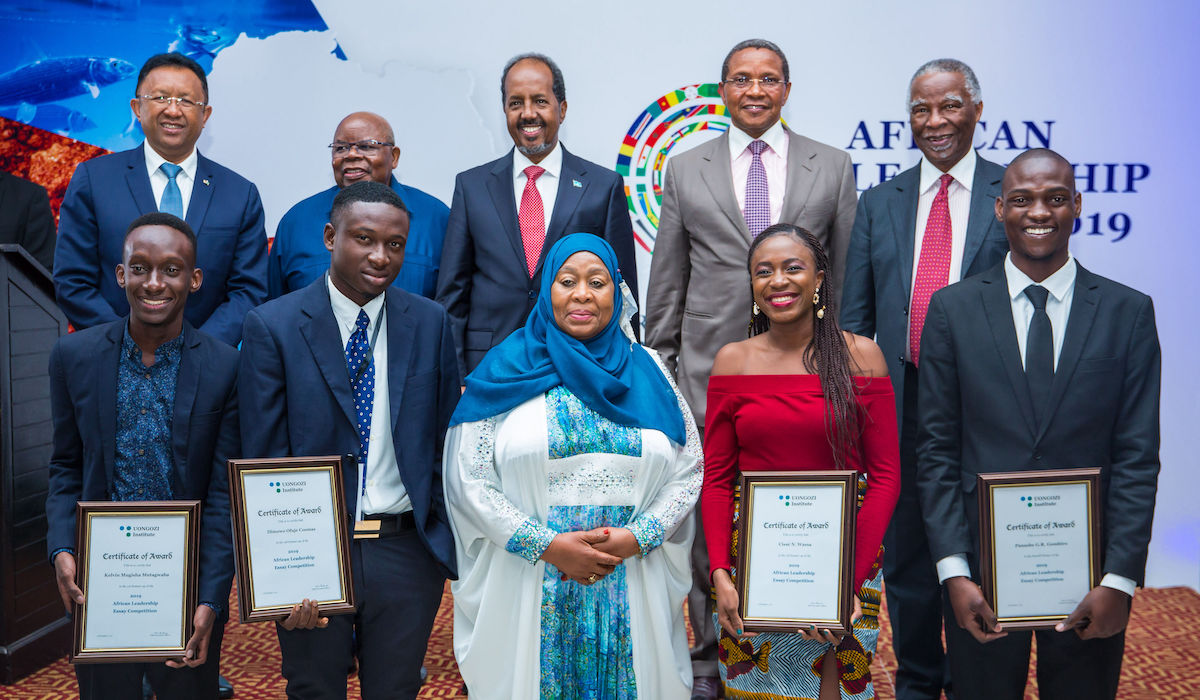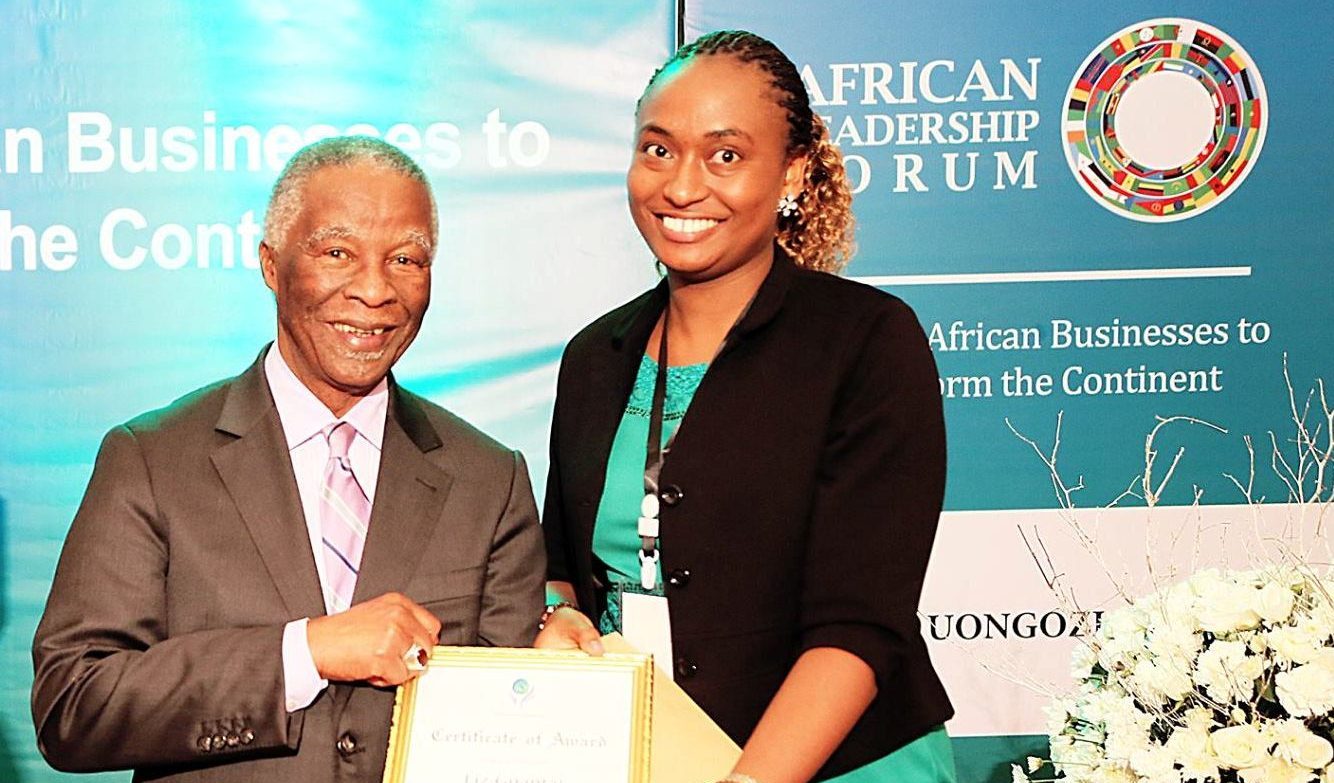The 2017 UONGOZI Institute Leadership Essay Competition received over 3,000 essays from across Africa. Contestants were asked to answer the following question on their essays:
“If you were a leader, what would you do to ensure that peace and security is achieved and sustained in Africa?”
Victor Azure, an aspiring young leader from Ghana emerged as the overall winner of the Competition.
As this year’s Leadership Essay Competition call for submissions is still open, we took the opportunity to interview Azure. In the interview, he shared his experience and tips for young Africans who are interested in participating in the competition.
Can you briefly introduce yourself?
My name is Victor Azure, a 25-year-old from Bolgatanga in the Upper East Region of Ghana. I am currently a postgraduate law student at the University of Ghana, the same university where I obtained my first degree in Political Science and Philosophy.
Before Law School, I worked as a Research Associate at the Legon Center for International Affairs and Diplomacy (LECIAD) where I served as a Project Assistant in the team that drafted Ghana’s Foreign Policy blueprint for the next 40 years as part of the country’s 40-Year Development Plan.
Through LECIAD, I wrote several policy briefs, published a book review on the Legon Journal of International Affairs and Diplomacy and an article in the Ghana Social Sciences Journal.
Furthermore, during the 2016 General Election in Ghana, I was part of the National Election Monitoring Team under the National Peace Council, which facilitated and developed mechanisms for conflict prevention and management.
What inspired you to participate in the Leadership Essay Competition?
First of all, I genuinely felt I had something to contribute on the topic, it was closely linked to the field I was working in as well as my educational background.
Secondly, I think my Ghanaian upbringing also inspired me to participate. Coming from the country of Kwame Nkrumah one cannot grow up consciously and not contemplate some of the things that he stood for, a liberated and united Africa. Peace and security are few of the elements needed to support Nkurumah’s vision.
Thirdly, I believe that Africa’s development can be fully realised if African youth are inspired to find innovative, well-suited and sustainable solutions to African problems. So, I was very excited to find a platform such as UONGOZI Institute’s Youth Leadership Competition, which allowed young people like me to contribute to important discussions on building a peaceful and sustainable Africa.
Tell us about your experience in Johannesburg at the African Leadership Forum, what interested you the most?
I used to tell my friends a joke that if I wasn’t a Ghanaian, then I would have probably been a South African. I am a history enthusiast, and I have always been moved with stories of freedom fighters and/or anti-apartheid activists like Nelson Mandela, Walter Sisulu, Winnie Mandela and others. Therefore, I was very pleased to be among the top five winners who were invited to attend the 2017 African Leadership Forum in Johannesburg, South Africa.
The Forum had a blend of leaders, experts and scholars from across Africa and other parts of the world, which made its discussions very interesting. It felt special to be in the same room with former Heads of State; H.E. Thabo Mbeki, former President of South Africa, H.E. Benjamin Mkapa, former President of Tanzania, H.E. Olusegun Obasanjo, former President of Nigeria, H.E. Mohamed Moncef Marzouki, former President of Tunisia, H.E. Bakili Muluzi, former President of Malawi, H.E. Hassan Sheikh Mohamud, former President of Somalia and H.E. Jakaya Kikwete, former President of Tanzania.
It was an eye-opening experience.
What tips can you share with young Africans who would like to participate this year?
Connect with the topic: You need to understand that you are the narrator, if you cannot connect to the topic enough to pin down examples and provide evidence, you might end up with a weak argument.
Do your homework: Almost everything under the sun has been written about. But, ideas are revised every now and then. Thus, before writing your essay, read about the subject. It allows you to develop or enhance your knowledge on the subject, and answer the essay question in a creative manner. The key here is to find a new way of presenting the issue.
Structure is important: You will not have more than two pages to discuss a very heavy topic. Structure can help you save space and say more. Your first paragraph should set out clearly what you want to achieve with your essay and how you are going to do it. This will enable the examiners to comprehend and follow your argument. Furthermore, subsequent paragraphs must run into each other to tell a coherent story. When paragraphs are coherent you are saved from writing a long conclusion.
Avoid plagiarism: Examiners will hold you to the higher standard than an ordinary blog or other social media platforms. Do not plagiarise, and acknowledge your sources.


